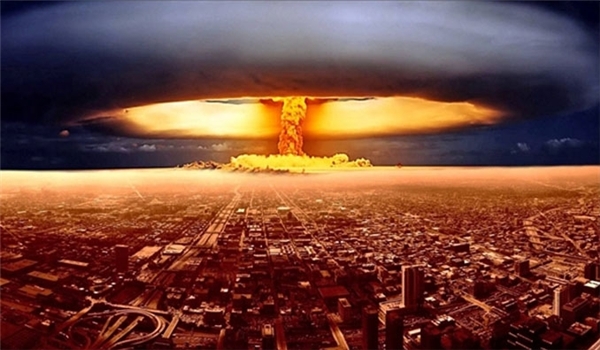
RNA - Now it’s time for atomic-bomb survivors, antinuclear activists, members of the Red Cross, and UN officials and member states to make history again. They should raise awareness about the Treaty on the Prohibition of Nuclear Weapons (TPNW) and demand the nuclear-armed states sign it. They should exert pressure on the handful of countries to also join the treaty.
As long as the nuclear-armed states refuse to adopt the treaty, there is no other way to outlaw all nuclear weapon-related activities, set out measures for disarmament, address victim assistance and environmental remediation, and acknowledge the disproportionate impact these weapons have had on humanity.
Unfortunately, the nuclear-armed states are still pouring billions of dollars a year into their renewal and expansion. The United States, for instance, has put aside 1 trillion dollars to modernize and expand its nuclear-weapon facilities and missile silos. It is this kind of attitude toward international law, human security, and the survival of the planet that has prevented global nuclear disarmament for more than seven decades. It is this attitude that has facilitated a new arms race in the Middle East.
Nevertheless, one year has passed since the TPNW’s adoption. This treaty is yet to eliminate nuclear weapons, and as long as the nuclear-armed states refuse to eliminate their nuclear weapons, the ban, the treaty, and the global antinuclear movement will show no results.
The international civil society, therefore, should actively work with the signatories to promote the TPNW and stop any state funds from being divested to nuclear weapons. Recently, major Belgian banks announced they would exclude all nuclear-weapon producers from investment; Deutsche Bank announced it has expanded its exclusion of “controversial weapon systems” to include nuclear-weapon companies; and Norway and the Netherlands have divested their pension funds.
Activists in cities and towns across the United States are encouraging their cities to comply with the TPNW as well, and to divest state funds from nuclear weapons. In the Middle East, Iran and many other governments have signed and voiced their support for the TPNW, urging all nuclear-armed regimes to join the ban, particularly Israel which has nuclear weapons.
It is up to the global antinuclear movement to make sure that the treaty is front and center on the regional world stage at these dangerous times. While it remains to be seen what might come of the talks in Syria and Yemen, in terms of peace and ceasefire in the region, it is an opportunity to showcase the TPNW as an instrument for both. The world community needs to present a concrete plan for removing nuclear weapons and threats of their use in the region, calling on Israel, as well as the United States, to join the nuclear ban.
According to Fars News Agancy, the world community should also call on NATO member states to discuss changing NATO’s doctrine away from reliance on nuclear weapons and toward implementing their repeated commitments to nuclear disarmament. The existing security agreements for NATO and other US allies do not prevent these states from joining the nuclear ban. The obstacles are not legal, they are only political.
On balance, nuclear weapons don’t provide security. It is in the interests of all nuclear-armed states to reduce and eliminate the perceived value of their nuclear weapons, decrease economic incentives for nuclear-weapon production, and reject nuclear weapons in their collective security doctrines.
The 2017 Treaty on the Prohibition of Nuclear Weapons has been successful in raising global awareness and debate. It should now encourage divestment from nuclear-weapon production and disrupt the dominant narrative on nuclear weapons among the nuclear-armed states. They must join the treaty if they want to change the world, and if they are honest about their alleged aspiration for peace and security in the Middle East.
847/940